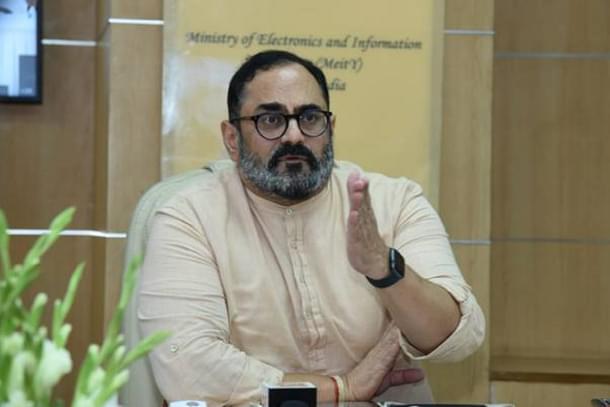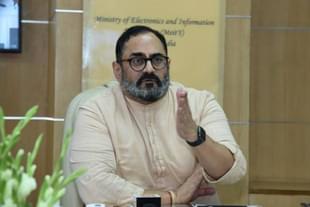News Brief
India To Regulate Artificial Intelligence, Keeping Digital citizens' Safety As Top Priority, Says Union IT Minister
Swarajya Staff
Jun 09, 2023, 04:44 PM | Updated 04:44 PM IST
Save & read from anywhere!
Bookmark stories for easy access on any device or the Swarajya app.


The Indian government's approach to regulating Artificial Intelligence (AI) will be centered on preventing any harm that may be caused to users, said Union IT minister Rajeev Chandrasekhar in a press briefing on Friday (9 June).
He emphasized that protective measures would be put in place to ensure that AI technology does not cause harm to 'digital citizens'. Chandrasekhar gave a presentation on India's journey towards digitization over the past nine years and stated that the same principle would be applied to any technology or digital platform, including Web3.
Notably, Web3 is the new iteration of the World Wide Web that incorporates concepts such as decentralization, blockchain technologies, and token-based economics.
According to Chandrasekhar, there has been an increase in criminality and toxicity on the Internet, and the government aims to protect digital citizens from malicious activities online. Any AI programs and platforms that mitigate user harm will be allowed to operate in India, while those that do not will not be granted permission to function.
He further stated that a new Digital Personal Data Protection Bill will be introduced in the parliament soon, and stakeholders' consultations will begin this month on the Digital India Bill.
He also addressed concerns surrounding loss of jobs arising from the development and proliferation of AI. He stated there is unnecessary 'melodrama' about it, since AI had created over one crore jobs in recent years.
The current application of AI is task-oriented, and the technology cannot perform reasoning and logic, which most jobs require, according to Chandrasekhar. While AI is disruptive, there is minimal threat to jobs as of now, he added.
Chandrasekhar further said that there is a remote possibility that AI will become intelligent enough to replace the human workforce in certain sectors after five years. However, AI's current state of development is limited to task-oriented applications that create efficiency and may replace repetitive and routine jobs in the future.
OpenAI CEO Sam Altman, who was on a tour of several countries, including Israel, Jordan, Qatar, the UAE, and South Korea, had met Prime Minister Narendra Modi on Thursday (8 June). Altman proposed the creation of a 'United Nations of AI,' which would jointly develop AI regulations.
According to Altman, regulating AI on a global level is crucial to ensure its development's goodness. He added that developing and deploying AI required international oversight and suggested the creation of a global body that would administer the process.
However, Chandrasekhar expressed a different view on Altman's proposal during his press conference last month. He had said that Altman had his ideas about how AI should be regulated, and India has smart brains capable of developing their own opinions on how the technology should have guardrails. If there is ever a United Nations of AI, it would be great, but it would not stop India from doing what is right for its digital citizens to keep the internet safe and trusted, he said.
Thus, while the Union IT Minister acknowledged the need for global coordination on AI regulation, he noted that India would independently develop its ideas on AI regulation, most suited to the interests of its digital citizens.





